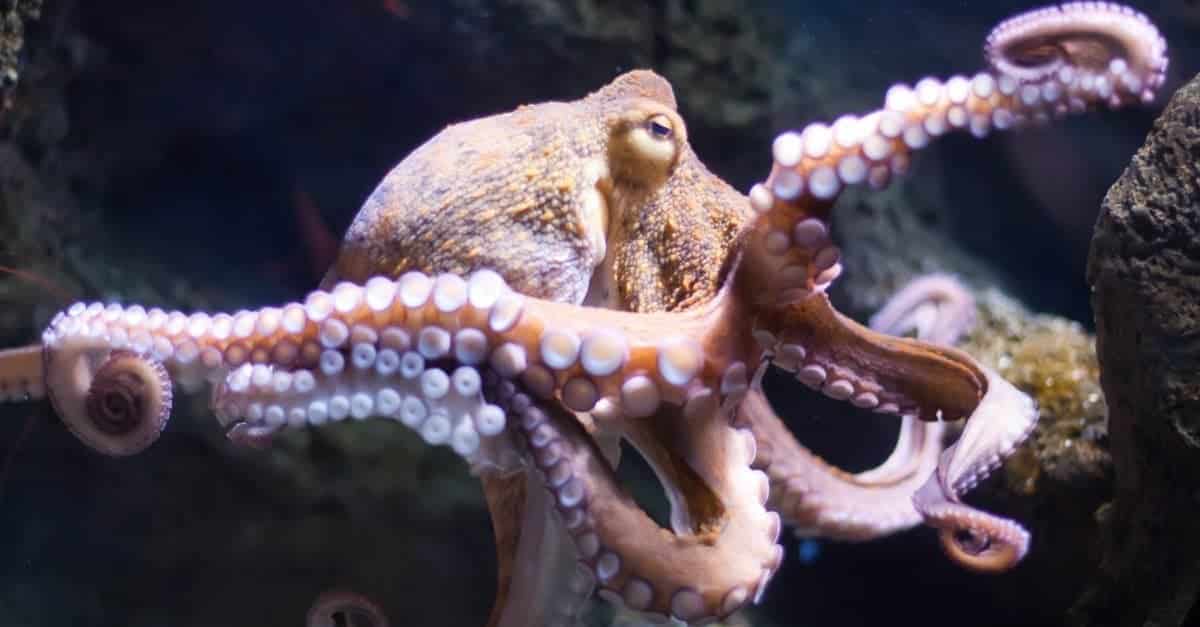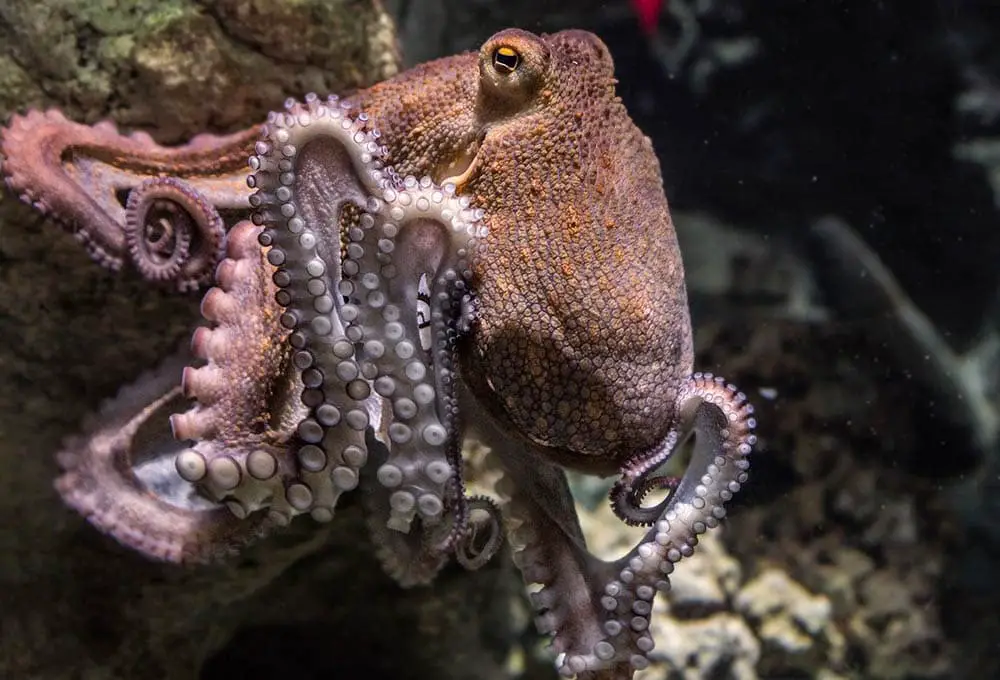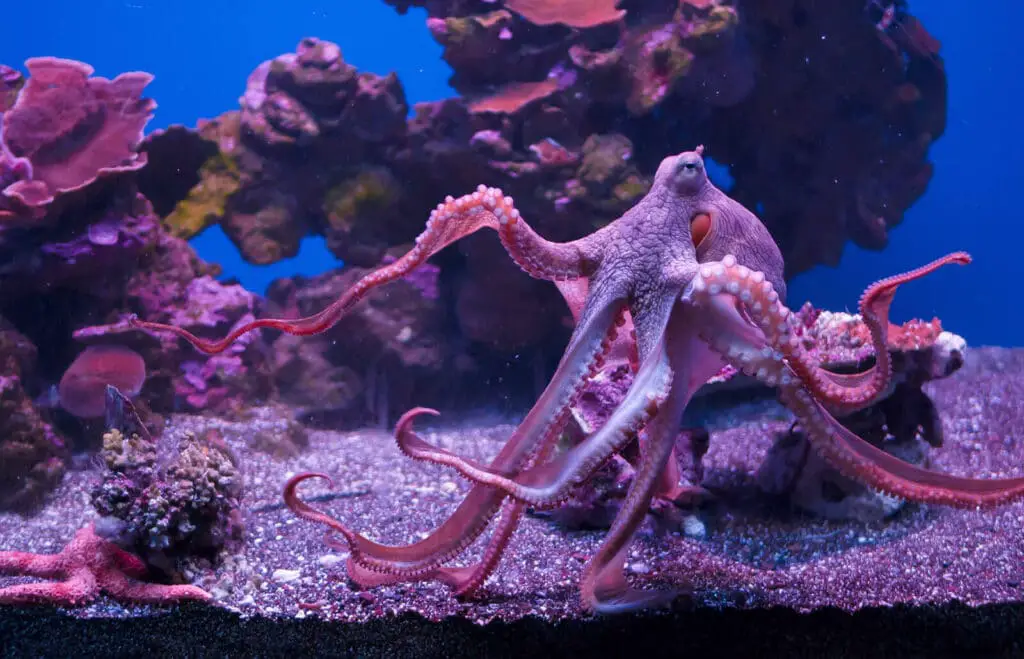How To Care For An Octopus

Introduction
How To Care For An Octopus: Octopuses are remarkable creatures, known for their incredible intelligence and captivating appearance. Keeping an octopus as a pet can be a rewarding and fascinating experience, but it also comes with significant responsibilities. To ensure the health and well-being of these intriguing cephalopods, it is essential to understand the intricacies of octopus care.
This guide will provide you with valuable insights into the art of octopus care. Whether you are a seasoned aquarist looking to expand your collection or a curious newcomer intrigued by the idea of keeping an octopus, this comprehensive resource will help you embark on this unique journey.
Octopuses require specialized care due to their complex biology and behaviors. From selecting an appropriate tank and creating a suitable environment for coral grow managing water quality and providing a proper diet, there are numerous factors to consider. Additionally, understanding octopus behavior and communication is crucial for building a strong bond with your aquatic companion.
We will delve into the specifics of octopus care, shedding light on their distinctive needs and habits. By following the guidance presented in this guide, you will not only ensure the welfare of your octopus but also have the opportunity to witness their remarkable abilities and interactions up close.
So, let’s embark on this captivating adventure into the world of octopus care, where science meets wonder, and where you become a caretaker of one of the ocean’s most enigmatic inhabitants.

How difficult is it to care for an octopus?
Despite some negatives, octopus aquariums and octopus-keeping can be pretty simple. They don’t require much light, only need simple wet-dry filtration, and don’t demand the same precise conditions as reef invertebrates need. The biggest challenge most octopus-keepers face is providing adequate food.
Caring for an octopus can be an incredibly rewarding yet challenging endeavor. The level of difficulty largely depends on your experience as an aquarist and your commitment to meeting the specific needs of these remarkable cephalopods.
One of the primary challenges is providing the right environment. Octopuses require a well-maintained tank with stable water parameters, including temperature, salinity, and pH levels. They are highly sensitive to changes, which makes maintaining water quality a constant priority.
Another aspect that makes octopus care challenging is their intelligence and curiosity. Octopuses are known for their problem-solving abilities, which can lead to escape attempts or mischief within the tank. Ensuring a secure enclosure is crucial to prevent any harm to the octopus or its tankmates.
Feeding an octopus can also be complex. Their diet often consists of live or freshly killed seafood, and they may have specific preferences. Meeting their dietary requirements can be time-consuming and may involve sourcing a variety of prey.
While caring for an octopus can be demanding, it offers a unique opportunity to engage with a highly intelligent and intriguing marine species. With dedication, knowledge, and the right resources, the challenges can be overcome, resulting in a rewarding and educational experience for any dedicated octopus enthusiast.
Can you keep octopus as a pet?
“One study revealed that octopuses in small tanks outfitted with flowerpots, stones, beads and shells still showed signs of distress and even self-mutilation. Your average fish tank setup probably isn’t going to cut it.” Octopuses are not bred for captivity or companionship. They’ve never been domesticated.
Firstly, you’ll need to set up an appropriate tank. Octopuses need a spacious and secure enclosure with excellent water quality. The tank must be escape-proof, as octopuses are notorious escape artists and can fit through surprisingly small openings.
Feeding an octopus can be challenging. They require a varied diet of live or freshly killed seafood, such as crabs, shrimp, and fish. Ensuring they receive proper nutrition can be time-consuming.
Octopuses are highly intelligent and have complex behaviors, which can make them fascinating to observe and interact with. However, their intelligence also means that they can become bored or stressed in captivity if not provided with adequate mental stimulation.
While it is possible to keep an octopus as a pet, it is a challenging endeavor that requires a deep understanding of their needs and behaviors, as well as a strong commitment to providing the necessary care and attention. It is not a suitable pet for beginners, but for those willing to invest the time and effort, keeping an octopus can be a unique and rewarding experience.
How do you take care of an octopus?
Despite some negatives, octopus aquariums and octopus-keeping can be pretty simple. They don’t require much light, only need simple wet-dry filtration, and don’t demand the same precise conditions as reef invertebrates need. The biggest challenge most octopus-keepers face is providing adequate food.
Taking care of an octopus is a meticulous and specialized task that demands attention to detail and a deep understanding of their unique requirements. Here’s a brief overview of how to care for an octopus:
- Habitat Setup: Begin by providing a suitable tank. Octopuses need spacious enclosures with plenty of hiding places and a secure lid to prevent escapes. The tank should mimic their natural habitat, with appropriate substrate and rock formations.
- Water Quality: Maintaining pristine water conditions is paramount. Regularly test and adjust parameters like temperature, salinity, pH, and ammonia levels. Octopuses are sensitive to changes, so stability is crucial.
- Filtration: Install a high-quality filtration system to remove waste and maintain water quality. Octopuses produce a lot of waste, so robust filtration is essential.
- Feeding: Octopuses have a varied diet, primarily consisting of live or freshly killed seafood like crabs, shrimp, and fish. Offer a diverse range of prey to ensure they receive proper nutrition.
- Enrichment: Stimulate their highly developed brains with puzzles, toys, and objects for exploration. Octopuses are curious and require mental stimulation to thrive.
- Interaction: Interact with your octopus cautiously and respectfully. Avoid handling them excessively, as it can cause stress. Observing their behaviors from a distance is often the best way to appreciate their intelligence and personalities.
- Health Monitoring: Regularly observe your octopus for signs of illness or stress, such as changes in color, reduced activity, or loss of appetite. Consult a vet experienced with cephalopods if you suspect any health issues.
Caring for an octopus is a challenging but rewarding endeavor that requires a well-maintained habitat, attention to water quality, proper nutrition, mental stimulation, and respectful interaction. It’s a commitment that offers a unique opportunity to observe and appreciate the wonders of these intelligent marine creatures.
What do octopus need to survive?
Like fish, octopuses need water to survive, and take in oxygen through their gills. But marine biologist Ken Halanych told Vanity Fair that octopuses can survive for around 20-30 minutes outside the water.
Octopuses, fascinating and highly adaptable marine creatures, have unique requirements to ensure their survival in the diverse underwater environments they inhabit. To thrive, octopuses primarily need suitable habitats, access to food sources, and the ability to evade predators.
First and foremost, octopuses rely on a suitable habitat. They are found in oceans worldwide, often preferring areas with rocky crevices, coral reefs, or sandy substrates, depending on the species. Octopuses use these environments for shelter and protection, as they are skilled at camouflaging themselves within their surroundings.
Octopuses are carnivorous predators, and their diet consists of various marine organisms like crustaceans, mollusks, and fish. Access to a consistent and diverse food supply is essential for their survival. They use their intelligence and agility to hunt, capturing prey with their powerful tentacles and beak.
Lastly, avoiding predation is crucial for octopuses. They employ a range of defense mechanisms, including jet propulsion to escape from danger and releasing ink clouds to create confusion and cover during escape. Their complex nervous system and remarkable problem-solving abilities also aid in their survival.
In essence, octopuses are highly evolved creatures with specific needs, including suitable habitats, a steady food source, and effective defense mechanisms, all of which contribute to their remarkable ability to survive in the world’s oceans.
How long can octopus stay out of water?
30-60 minutes
It might seem abnormal, but most species of octopus can survive out of water for 30-60 minutes, allowing them to slink from pool to pool in search of food when the tide goes out. We rarely see these ‘air raids’ because cephalopods typically hunt at night!
Octopuses are remarkable marine creatures, but their ability to survive out of water is quite limited. Generally, an octopus can only remain out of water for a short period of time, typically ranging from a few minutes to an hour, depending on various factors.
Octopuses are adapted for life in the ocean and have specialized respiratory structures called gills that extract oxygen from water. When they are out of water, their gills quickly begin to dry out, causing the octopus to suffocate. This limitation means that octopuses are not built for terrestrial life like some amphibious creatures.
However, some octopus species have developed interesting adaptations to briefly venture onto land. For example, the veined octopus has been observed crawling on dry land and using coconut shells for shelter. These behaviors are believed to be survival strategies rather than long-term excursions onto land.
While octopuses possess incredible abilities for life in the water, their capacity to survive out of water is quite restricted due to their specialized respiratory system. They are primarily aquatic creatures, and any time spent out of their natural aquatic habitat must be brief to ensure their survival.
What are the essential considerations for octopus care?
Proper octopus care demands a delicate balance of attention to detail and understanding of their unique needs. Firstly, a suitable enclosure is crucial. Octopuses are highly intelligent and curious creatures that can escape through even the tiniest openings, so a secure, escape-proof tank with no exposed openings is essential. Additionally, maintaining stable water parameters, including temperature, salinity, and pH, is vital.
Feeding an octopus is an art in itself. These carnivorous animals require a varied diet of live or freshly killed seafood, such as shrimp, crabs, and clams. It’s essential to offer a diverse menu to ensure they receive proper nutrition. Octopuses are known for their problem-solving abilities, so providing them with enrichment activities, such as puzzles and hiding places, is essential to keep them mentally stimulated and prevent boredom.
Handling an octopus should be kept to a minimum, as they can be easily stressed. Octopus care is a challenging but rewarding endeavor for those willing to dedicate the time and effort to create a suitable environment for these fascinating and intelligent marine creatures.
What size of tank is suitable for an octopus?
Selecting the appropriate tank size for an octopus is a crucial consideration in ensuring their well-being. Octopuses are intelligent and active marine animals that require ample space to thrive. As a general rule of thumb, a tank for an octopus should have a minimum volume of at least 50 gallons (approximately 189 liters) for smaller species, like the common octopus (Octopus vulgaris).
The tank’s dimensions are equally important. A wider and longer tank is preferable to a taller one, as octopuses are primarily bottom-dwelling creatures and benefit from a larger horizontal swimming area. Additionally, a lower water level helps prevent escapes, as octopuses can be skilled at squeezing through small openings.
It’s essential to remember that octopuses produce a significant amount of waste, so a well-maintained filtration system is necessary to keep water quality optimal. Regular monitoring of water parameters and adequate water flow are essential for their health.
A spacious tank with appropriate dimensions and a robust filtration system is vital to ensure the comfort and well-being of your octopus, allowing them to display their natural behaviors and thrive in captivity.
What water parameters are important for octopus tanks?
Maintaining the correct water parameters in an octopus tank is essential for the health and well-being of these highly sensitive and intelligent marine creatures. Several key water parameters should be closely monitored and regulated:
- Temperature: Octopuses are cold-blooded animals, and their metabolism depends on water temperature. Typically, water temperature should be maintained between 50°F and 78°F (10°C to 26°C), depending on the octopus species. Sudden temperature fluctuations can stress or harm them, so stability is critical.
- Salinity: Octopuses are most comfortable in seawater with a specific gravity of 1.025, which is close to natural seawater salinity. Salinity levels should be kept stable, as fluctuations can stress the octopus and affect its osmoregulation.
- PH Level: The pH of the tank water should be maintained within a range of 8.0 to 8.4, which is typical of marine environments. Drastic changes in pH can be harmful to octopuses.
- Ammonia, Nitrite, and Nitrate: These are crucial water parameters to monitor, as elevated levels of ammonia and nitrite can be toxic to octopuses. A well-functioning filtration system is necessary to keep these parameters in check. Nitrate levels should also be kept low, as high nitrates can lead to health problems.
Regular water testing and maintenance are essential to ensure these parameters remain stable and within the appropriate ranges for the specific octopus species you are keeping. Monitoring water quality is crucial for providing a healthy and stress-free environment for these fascinating creatures.

Conclusion
Caring for an octopus is an endeavor that demands commitment, understanding, and a profound appreciation for the mysteries of the ocean. As we conclude this journey into the world of octopus care, it becomes evident that these creatures are much more than exotic pets; they are complex, sentient beings deserving of our respect and proper care.
Throughout this guide, we’ve explored the essential elements of octopus care, from setting up an appropriate habitat to meeting their dietary needs and understanding their unique behaviors. We’ve learned about the importance of maintaining water quality, providing enrichment, and creating a safe and stimulating environment for our cephalopod companions.
Beyond the practical aspects, caring for an octopus offers a glimpse into the depths of marine biology and cognition. Octopuses display remarkable problem-solving abilities, communication through color and texture changes, and intriguing social dynamics. In return for our diligent care, they reward us with captivating displays of their intelligence and curiosity.
As caretakers of octopuses, we have a responsibility to raise awareness about the conservation challenges these animals face in the wild including habitat degradation and overfishing. By nurturing octopuses in captivity, we contribute to the preservation of their species and foster a deeper connection to the fragile beauty of our oceans.
The journey of octopus care is not just about creating a thriving environment for these creatures; it’s about embarking on a lifelong adventure, exploring the seven wonders of the deep, and forging a unique bond with some of nature’s most enigmatic inhabitants. May your octopus care experience be as enriching and fulfilling as the oceans themselves.



